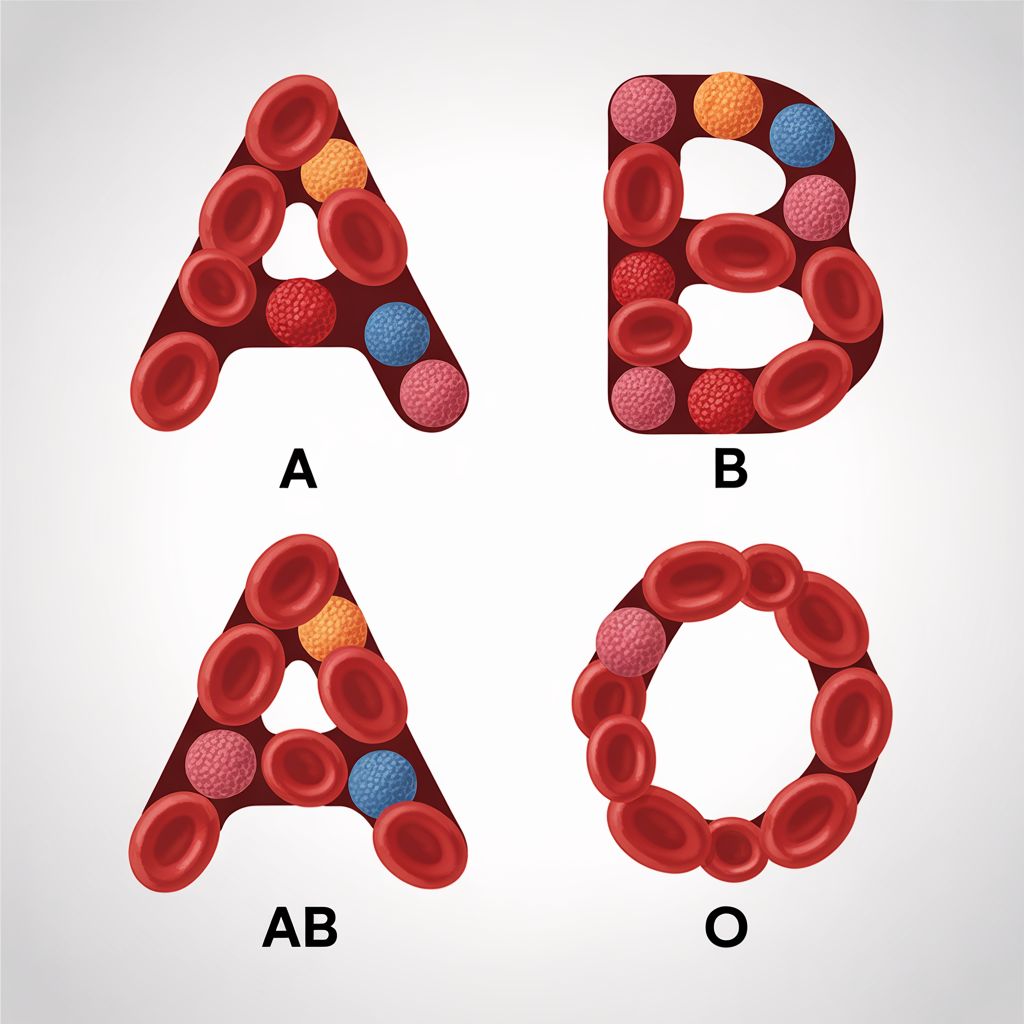Knowing your blood type isn’t just medical trivia—it’s potentially life-saving information that every person should have readily available. Whether you’re facing a medical emergency, planning for pregnancy, or simply want to be prepared, understanding blood types and their importance can make a significant difference in your healthcare journey. This guide will walk you through the basics of blood types, explain why this knowledge matters, and show you how to find out your blood type through proper medical channels.
Understanding Blood Types: The Basics
What Are Blood Types?
Blood types are inherited characteristics that determine the specific markers present on your red blood cells. Think of these markers as tiny identification tags that help your immune system recognize what belongs in your body and what doesn’t. These genetic traits are passed down from your parents and remain constant throughout your life.
There are two main blood group systems that medical professionals focus on: the ABO system and the Rh system. Together, these systems create the blood type classifications that most people are familiar with, such as A-positive or O-negative.

The ABO System Explained
The ABO system divides blood into four main types based on the presence or absence of specific antigens:
- Type A: Has A antigens on red blood cells, found in approximately 40% of the population
- Type B: Has B antigens on red blood cells, present in about 11% of people
- Type AB: Has both A and B antigens, the rarest type at around 4% of the population
- Type O: Has no A or B antigens, the most common type at approximately 45% of people
These percentages can vary significantly among different ethnic groups and geographic regions, but they provide a general understanding of blood type distribution.
The Rh Factor
The Rh factor adds another layer to blood typing. If you have the Rh protein on your red blood cells, you’re Rh-positive (indicated by a + sign). If you don’t have this protein, you’re Rh-negative (indicated by a – sign).
This creates eight common blood type combinations: A+, A-, B+, B-, AB+, AB-, O+, and O-. About 85% of people are Rh-positive, while 15% are Rh-negative.
Why Knowing Your Blood Type Matters
Medical Emergency Situations
In medical emergencies requiring blood transfusions, knowing your blood type can be crucial. While medical professionals always perform compatibility testing before transfusions, having this information readily available can speed up the process when time is critical.
Blood transfusion compatibility is based on strict scientific principles. Receiving incompatible blood can trigger serious immune reactions, which is why medical teams take extensive precautions to ensure compatibility before any transfusion.

Pregnancy Planning Considerations
Blood type information becomes particularly important during pregnancy, especially regarding Rh factor compatibility between parents. When there’s an Rh incompatibility between mother and baby, it can potentially affect pregnancy outcomes.
If you’re planning to start a family or are currently pregnant, discussing blood type information with your healthcare provider is essential. They can provide personalized guidance and monitoring based on your specific situation.
Medical History and Health Records
Having your blood type as part of your medical records helps healthcare providers make informed decisions about your care. This information becomes valuable when filling out medical forms, creating emergency medical information, and maintaining comprehensive health records.
Many people choose to include their blood type on medical alert bracelets or emergency contact information, making it easily accessible to first responders and medical personnel.
Blood Type Compatibility: What You Should Know
Universal Donors and Recipients
Type O-negative blood is often called the “universal donor” because it can typically be given to people with any blood type in emergency situations. This is because O-negative blood lacks the A, B, and Rh antigens that might trigger immune reactions.
Conversely, people with AB-positive blood are sometimes referred to as “universal recipients” because they can typically receive red blood cells from any ABO and Rh type, since they already have A, B, and Rh antigens.
However, it’s important to note that these are generalizations for emergency situations. Medical professionals always perform specific compatibility testing when possible.
Basic Compatibility Rules
Blood transfusion compatibility follows specific scientific principles:
- People with Type A blood can typically receive A and O blood
- People with Type B blood can typically receive B and O blood
- People with Type AB blood can typically receive any ABO type
- People with Type O blood can typically only receive O blood
Rh compatibility adds another layer, where Rh-negative individuals should typically receive Rh-negative blood, while Rh-positive individuals can usually receive either Rh-positive or Rh-negative blood.
How to Find Out Your Blood Type
Medical Testing Options
The most reliable way to determine your blood type is through medical testing performed by healthcare professionals. This typically involves a simple blood draw that can be done at your doctor’s office, hospital, clinic, or certified laboratory.
The test itself is straightforward and usually takes just a few minutes. Results are typically available within a day or two, depending on the facility and testing procedures.

When Blood Type Testing Typically Occurs
Many people discover their blood type during routine medical care:
- During comprehensive physical exams or health screenings
- As part of prenatal care during pregnancy
- Before scheduled surgeries or medical procedures
- When donating blood through certified blood banks
- During military service or certain employment requirements
Keeping Records
Once you know your blood type, it’s important to keep this information easily accessible. Consider storing it in multiple places: your wallet, phone, medical records, and emergency contact information. Many people also share this information with close family members who might need to communicate it to medical personnel in emergency situations.
Common Myths and Misconceptions
Blood Type and Personality
Some cultures promote the idea that blood type determines personality traits or characteristics. However, there is no scientific evidence supporting connections between blood type and personality, behavior, or character traits. These beliefs are cultural myths rather than medical facts.
Blood Type Diets
Various diet plans claim that people should eat differently based on their blood type. However, mainstream nutrition science does not support the idea that blood type should determine dietary choices. A balanced, nutritious diet following established nutritional guidelines is beneficial for people of all blood types.
Important Safety Reminders
While knowing your blood type is valuable information, it’s crucial to remember that this knowledge is primarily for emergency preparedness and medical record-keeping. Only qualified medical professionals should make decisions about blood transfusions and medical treatments.
Always inform your healthcare providers about your blood type, but remember that they will still perform their own testing to verify compatibility before any medical procedures. Medical protocols exist to ensure patient safety, and these procedures should always be followed regardless of your personal knowledge of your blood type.
If you’re unsure about your blood type or have questions about testing results, consult with a qualified healthcare provider who can provide personalized guidance based on your individual medical situation.
Conclusion
Understanding your blood type is an important piece of personal medical information that can prove valuable in emergency situations, during pregnancy planning, and for maintaining comprehensive health records. The four basic blood types (A, B, AB, and O) combined with Rh factor (positive or negative) create eight common blood type combinations that determine transfusion compatibility.
If you don’t know your blood type, consider discussing testing with your healthcare provider during your next medical appointment. Having this information readily available and properly documented can contribute to your overall emergency preparedness and healthcare management.
Remember that this information is for educational purposes only and should not replace professional medical advice. Always consult with qualified healthcare providers for personalized medical information and guidance related to your specific health needs and circumstances.